Immediate Realism and Aquinas's Way To God
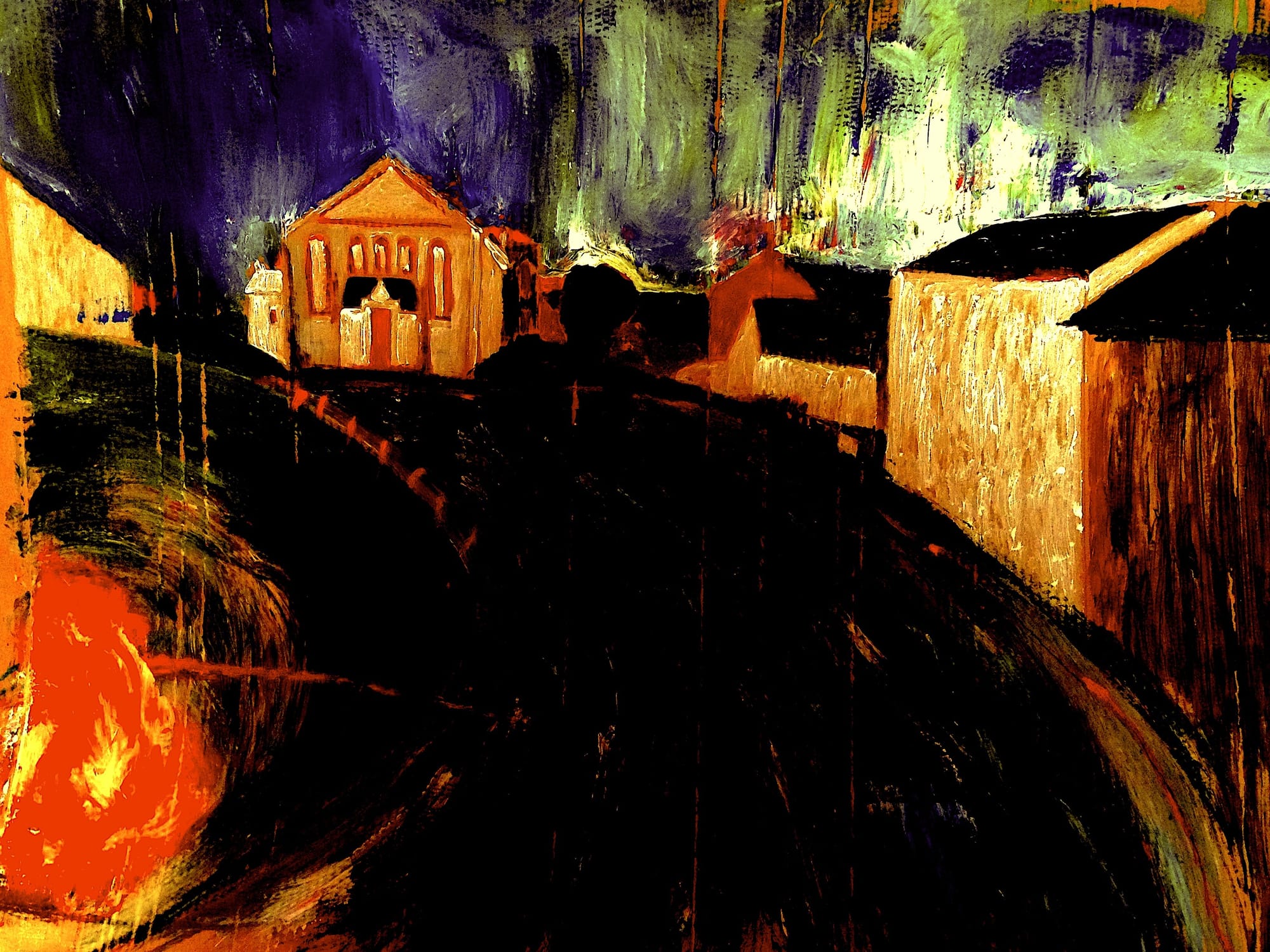
Interview by Richard Marshall

' I have always felt at home in analytic philosophy, but one of the problems that I have with it is that it cannot come to terms with esse. This is because there is no way to think oneself into esse other than by attending to the phenomenon itself and giving an account of it. As I have argued elsewhere, this mode of thinking is alien to analytic philosophy.'
'Now immediate realism is the view that in my thinking there is an immediate presence of the real to me. Reality is not mediated by a complex cognitive process which represents the world; rather that cognitive process simply brings the world into view. The intellect is not a mirror on this account; it is a capacity for conceptual operations brought into play by the world.'
'But once we start deriving the metaphysics from the epistemology we run into problems. Better to begin with the metaphysics properly first and then do the epistemology; and if we are met with philosophers of a post-Kantian mindset we can engage with them in terms of the epistemology and establish the strength of the Thomistic position in this regard without bringing in the metaphysics.'
'I think the De Ente argument is the Thomist way to God. The reason why I think this is that it trades on an insight that is rather Platonic in nature and it is to the effect that things that are lacking in an important respect participate in that which is not so lacking.'
'No science demonstrates the existence of its formal object; it presupposes it and moves on. Hence, all natural science presupposes esse, but says nothing about esse. Metaphysics on the other hand considers being as being, and part of that consideration is a consideration of esse.'
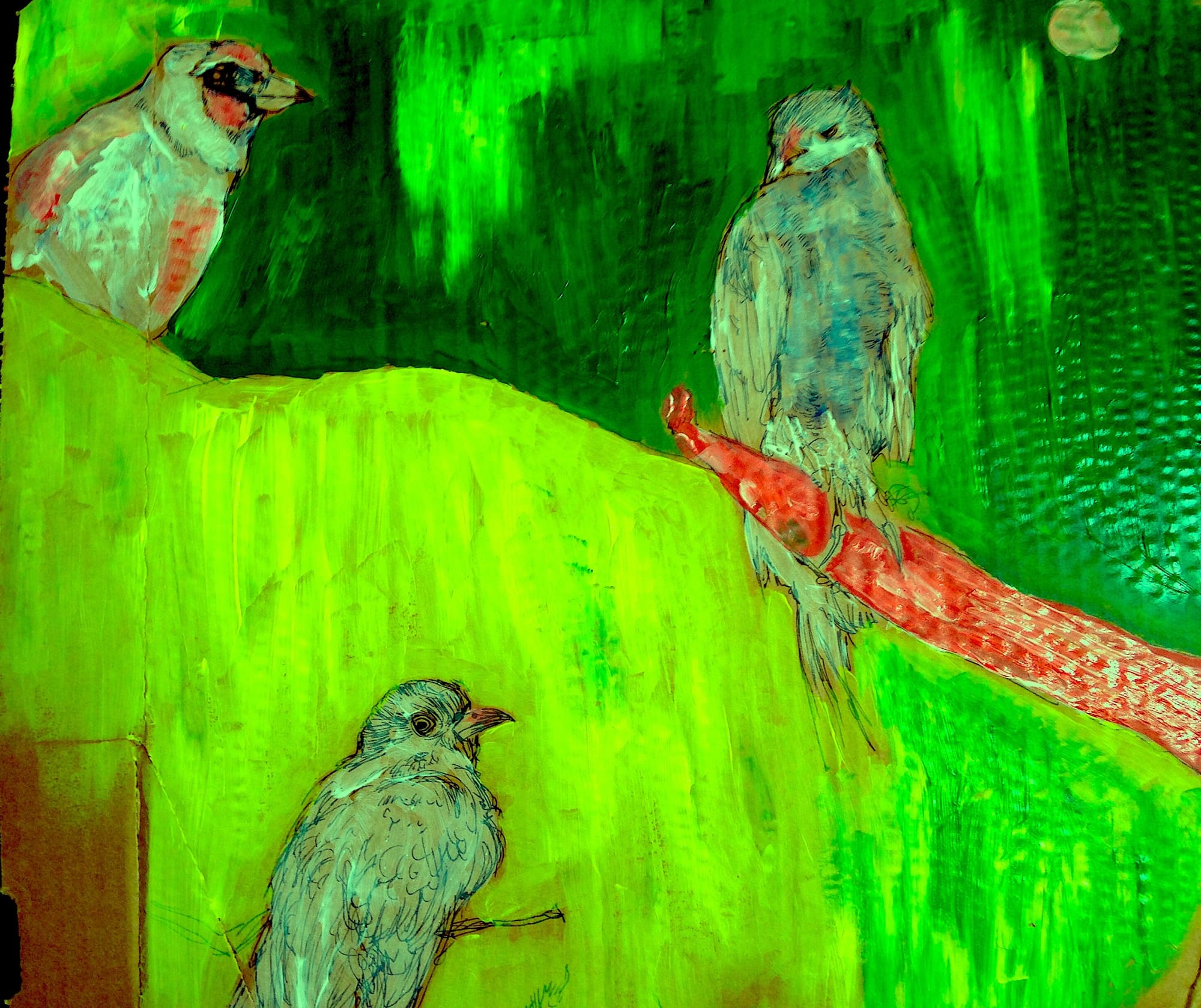
Gaven Kerr is interested in Thomas Aquinas, Medieval Philosophy, Metaphysics (ancient, medieval, and contemporary), Epistemology, Ethics, Logic, History of Philosophy and Philosophy of Religion. Here he discusses whether analytic philosophy can understand Aquinas's esse, the immediate realism of Léon Noël and neo-Thomism, isomorphism between intellect and reality, a neglected argument he makes in that of De Ente et Essentia Cap. IV, Aquinas as existential metaphysician, the philosophy of creation and the nature of the agent of creation, the nature of creation and how we should understand the idea of being created ex nihilo, what is actually originated by God’s act of creation, how the beginning of creation stands in relation to God, the development of created things over time, he absolute final cause, how Aquinas conceives humanity as returning to God, and finally whether a Thomist metaphysics can be reconciled with a metaphysics suggested by physics.
3:16 What made you become a philosopher?
Gaven Kerr: The answer to this question goes back to my school years. In Northern Ireland when we are coming to the end of our secondary school education we take two sets of examinations. One is the General Certificate in Secondary Education (GCSE) and we take this set of examinations at around 16 years of age. Having done that we can go further and take what were called in my time A-levels on the basis of which local universities made offers to students for admittance to their programmes. When it comes to choosing topics for A-levels we usually go with what we were particularly strong at in our GCSEs. I had a particular strength in mathematics and wished to pursue that, but I was heavily discouraged from doing so because of my lack of interest in the science taught in school at the time (not to be confused with a lack of interest in science in general). We had to choose three subjects at A-level and I had already chosen IT and History and was hoping to take mathematics as a third option. But without the latter I was looking about for a third option and the possibility of religion presented itself. The religion syllabus was divided into two with one portion of it being on the synoptic gospels and the other being on the philosophy of religion. So at the age of 16 when undertaking my A-level studies I was first exposed to philosophy in the form of philosophy of religion. However, this is not exclusively what made me become a philosopher, mathematics still had its role to play.
In school my mathematics teacher was the same man from entering secondary school at the age of 11 in 1994 until I did my GCSEs in 1999, and the only thing I can say about him is that he was an eccentric genius. He did not teach mathematics like a textbook. He was in love with mathematics, he lived and breathed it. He was completely at home in the realm of the mathematical and he brought us into that realm. What I learned from him was an ability to be at ease in a highly complex abstract realm without losing my footing in reality. Five years of classes with this mathematics teacher prepared me for the easy reception of learning in the philosophy of religion. I was immediately at home in this study. So much so that I decided to apply to Queen’s University Belfast for a degree in scholastic philosophy.
When I entered QUB there were two philosophy departments: (i) the department of scholastic philosophy and (ii) the department of philosophy. The former was devoted to the scholastic tradition whereas the latter was more engaged with the analytic tradition. My degree was a joint degree in both departments. So I was at home in the intellectual world of Plato, Aristotle, Aquinas et al and Frege, Russell, Wittgenstein, with the study of Descartes, Locke, Hume, Kant etc being common to both departments. I was immediately captivated by all of this and undertook study in as many areas as were available to me.
Upon completion of my first degree I wanted to pursue postgraduate studies. At the time (2004) Rev. Prof. James McEvoy had just come back to Belfast to take up the chair in scholastic philosophy at QUB, so I stayed and pursued a research masters with him (an MPhil) on the distinction between essence and existence in the thought of Aquinas, that was completed in 2006. After that I undertook doctoral studies, again with McEvoy, on the broad topic of Thomistic realism wherein I pitted Aquinas against Kant on the issue of our epistemic engagement with reality. My PhD was completed and submitted at the end of 2010 and I was examined in 2011 with John Haldane as my external examiner on the feast of St Thomas Aquinas (January 28th) and awarded the degree in the summer of 2011.
Just before submitting my PhD at the beginning of October 2010 (literally the day before), Prof. McEvoy sadly passed away. Because of an administrative problem, I was not permitted to submit my doctorate on the date I would have wished, but on the following day, which was the day of Prof. McEvoy’s funeral. So I never actually ended up submitting the thing myself, but one of the secretaries in the school submitted it for me. Prof. McEvoy was the last to hold the chair of scholastic philosophy at QUB, and I was his last student. I will always be deeply grateful to McEvoy’s direction and I certainly feel a sense of responsibility to the great tradition in philosophy within which he directed me and from which I have learned so much.
During my doctoral studies I was asked to teach some tutorials and gradually this developed into lecturing; something I have been doing ever since. I always felt at home in philosophy and my students seemed to like me as a tutor or lecturer. So one thing led to another and I’m still teaching philosophy. Not only that, in teaching philosophy I have come upon a number of issues which I believe are worth dealing with at a deeper level, not only because they have perplexed students, but also because they reoccur amongst diverse philosophers. It is this that has guided my research and drawn me into the field of philosophy as an activity for the clarification of certain perennial issues.
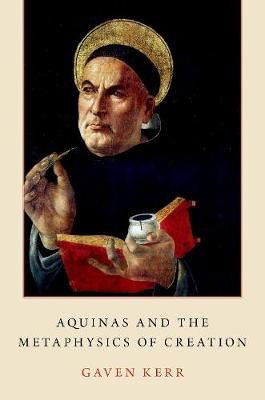
3:16: You’re interested in the metaphysics of medieval philosophy, in particular the metaphysics of Aquinas. I was surprised that in one of your essays you argue that at least parts of Aquinas’s thinking is alien to analytic philosophy to the point ‘ that analytical philosophy is constitutionally unable to come to terms with Thomist esse.’ There are a number of analytic Thomists around though so I wondered whether you may be overstating your case a little here. It also struck me that you yourself seemed analytic in your approach. First, can you take us through your argument – can you say what the Aquinas’s metaphysics of esse is?
GK: In Aquinas’s thinking there is a fundamental principle without which beings would be nothing at all, and this is esse or the act of existence. So whereas Thomas is somewhat, but not totally or dogmatically, Aristotelian in his philosophy of essence, he recognizes a principle of actuality even deeper than form and this is esse.Esse is the co-principle of essence in the existing thing and it is that without which even essence would not be (hence it is not a separable accident of essence).
Now I have always felt at home in analytic philosophy, but one of the problems that I have with it is that it cannot come to terms with esse. This is because there is no way to think oneself into esse other than by attending to the phenomenon itself and giving an account of it. As I have argued elsewhere, this mode of thinking is alien to analytic philosophy.
Now of course, an analytic philosopher can come along and say: ‘I’m an analytic philosopher and look, I’ve understood Aquinas and what you say about him, and so as an analytic philosopher I have thought my way into esse; so analytic philosophy can deal with esse’. My point here would be that if one argues like that, then the notion of analytic philosophy has lost all meaning; for in this case, the analytic philosopher in question takes analytic philosophy to be any item of philosophical interest that he can understand and so merits the title ‘analytic’. But of course, in depicting an approach to philosophy which is used as a criterion for job applications and journal entries, the ‘analytic’ in ‘analytic philosophy’ cannot just be what a self-professed analytic philosopher takes to be interesting at any particular time; there has to be something weightier to ‘analytic’ than what self-professed analytic philosophers do, otherwise it is nothing more than an expression of personal likes and dislikes.
So I argued that there are several ways that canonical analytic philosophers deal with basic fundaments in philosophy and none of these is capable of coming to terms with esse. I and others am capable of engaging with esse, not because I’m an analytic philosopher, but simply because I’m a philosopher. Either the analytic Thomist will have to say what is properly analytic in his thinking (and this will always run the risk of including or excluding too much) or he will have to say that his being analytic is simply a matter of taste (in which case there is nothing particularly special about it as a philosophical endeavour).
3:16: I count people like John Haldane, Alvin Plantinga and Peter van Inwagen as analytic philosophers. What do you take an analytic philosopher to be and what in particular do you think analytic philosophy – not even an analytic Thomist like Haldane - couldn’t come to terms with? Are you signaling here the distinction between the Thomist approach to esse and the contemporary metaphysics of either a Quinean ontological approach or Kripkean modal approach?
GK: I certainly think that Haldane, Plantinga, and Van Inwagen are analytic philosophers. When it comes to what I take analytic philosophy to be that is a difficult question, since there is no clear articulation of what analytic philosophy is by its practitioners. And this speaks somewhat to the point I was making in my answer to the previous question: unless there is a beefed-up notion of analytic philosophy in analytical Thomism, then the analyticity of that Thomism is just an expression of taste and nothing more. When we try to beef up the notion of analytic philosophy by looking at the practices of its practitioners, we see that it is deeply uneasy with Aquinas’s notion of essesuch that it cannot come to terms with it. This is because according to those practices an unanalysable philosophical fundament is either impossible or to be understood in terms of something other than itself, e.g. as the value of a bound variable or in terms of possibility. If we deny the intelligibility of unanalysable fundaments, then there is no room for Thomist esse, if we try to analyse essein terms of something other than itself, we always get it wrong, since there is nothing explanatorily more basic than esse. Thus, we can only understand essein terms of itself and that means engaging with the phenomenology of esse. One might wish to argue that such phenomenological thinking is not alien to what contemporary analytic philosophers are doing, but that then takes the wind out of analytic philosophy making it simply an expression of what self-professed analytic philosophers like at the time. My point is that Thomism is a philosophical position and is dealing with philosophical concepts; rather than trying to circumscribe it within a philosophical tradition like analytic philosophy with no clear identity, it is better simply to come to terms with Thomism on its own terms.
3:16: You’ve written about the immediate realism of Léon Noël and neo-Thomism. First can you say what ‘immediate realism’ is? What was Noël’s approach and why do you think it at least as interesting as the approaches of Etienne Gilson and Jacques Maritain?
GK: Realism is the view in epistemology that my thought about reality is in an important sense determined by the reality that it is about. Now this can be held naively such that in the best-case scenario when I am having a true thought it is of reality that I’m thinking. The naivete of this view is nothing pejorative; if one is a realist, then it is indeed the case that in the best-case scenario my thinking is about reality. But there is more to be drawn out on the realist account, especially given the alternative accounts offered by Descartes, Hume, Kant et al.
Now immediate realism is the view that in my thinking there is an immediate presence of the real to me. Reality is not mediated by a complex cognitive process which represents the world; rather that cognitive process simply brings the world into view. The intellect is not a mirror on this account; it is a capacity for conceptual operations brought into play by the world. We typically think of bare experience as being the same across all animals that have the same sensory capacities. But human experience is quite distinct from non-human experience insofar as it brings into operation conceptual capacities, so that we do not experience the world as a bare presencing of sensory data, we experience it as conceptually loaded and capable of being understood. When I hear words in a foreign language I don’t understand, I am not simply getting data, I am having a formed experience which brings into operation my intellect. Given sufficient time and focus I will eventually come to understand that language precisely because my intellect is brought into play in the experience; this does not happen with non-rational animals. Immediate realism is the view that our conceptual capacities go all the way down to experience and do not stand above our experiences awaiting input for processing; reality is immediately present to us.
I think this is an interesting approach to realism for two related reasons. The first is that it engages with the post-Kantian problematic of mind and world and how the two are related. This is still a live concern in a number of contemporary philosophical debates and as I suggested in my article on Noël, there is room for fruitful interaction with post-Kantian philosophers who are trying to present some version of realism that avoids the bare presencing of the world to us, e.g. John McDowell. The second reason I think this position is interesting is that it speaks to the debate amongst the Neo-Thomists on how exactly to deal with post-Kantian philosophy. On the one hand there was Gilson and his followers who argued that realism must be adopted as a methodological starting point, any starting point not grounded in realism cannot hope to recover reality. On the other hand, there were the critical realists who held that we can begin with an analysis of our cognitive operations as revelatory of reality and in turn deal with the Kantian critical problem on its own terms. Noël appears to adopt an intermediate approach. We explore our thinking as making reality present to us; this presence is immediate. Hence our conceptual operations do not operate were it not for engagement with reality. Thus, reality is immediate and accepted from the outset, but the key critical problem of mind and world is also addressed with the affirmation that there are conceptual capacities that are brought into play in our engagement with the world. I think this is a neglected alternative that was not much explored at the time, though the stand-off between Gilson and Noël was drawn out. However, after the dust settled on the debate, it was the opposition of the critical realists and the Gilsonians that emerged as the standard options and the mediating position of Noël was somewhat overlooked.
3:16: Do claims for an isomorphism between intellect and reality lead to a commitment beginning in idealism and ending in realism, and is this a fatal commitment, in particular for a Thomistic metaphysics?
GK: The claim of isomorphism between intellect and reality has at its heart the view that the structures of cognition are mirrored in the structures of the real such that our cognition is brought into operation by reality. There is nothing problematic in that for the realist, since as I have been laying out above, our conceptual operations go all the way down to experience and are brought into activity by our experience. If we are realists, then we hold that there is something of a conceptual nature about reality with which our conceptual capacities can engage. However, as I argued in my paper on Lonergan, there is a problem with his position on this matter. This is because Lonergan argues that there is a threefold cognitive process which is isomorphic with a threefold metaphysical constitution: experience-understanding-judgement as isomorphic with potency-form-act. So experience-understanding-judgement are related to each other as potency-form-act. My problem here is that whilst experience and understanding may be related as potency and form, understanding and judgement in Lonergan’s account cannot be related as form and act upon the Thomistic account. For Thomas, form (or the composite unity of potency and form, i.e. the essence) is actuated by esse such that esse is a causal principle of the thing, it makes it real. Judgement does not relate to understanding in the same way, since judgement does not make the understanding to be correct; rather it recognises the correctness of the understanding and affirms it. Thus there is a dissimilarity in the relationship between understanding and judgement and form and act, in which case the isomorphism breaks down.
In my paper on this issue I argued that the Gilsonian objection that one who begins as an idealist always remains as one is partially applicable here. Lonergan does end up affirming realism no doubt, but it is only a realism that stops at form, i.e. it is Aristotelian, it is not a realism that goes all the way to esse, or at least Thomist esse. So as I argued we have not arrived at Thomist realism.
Now for the purposes of doing epistemology, we can set the metaphysics to the side and just focus on the cognitive process that Lonergan outlines and we have a very good epistemology. But once we start deriving the metaphysics from the epistemology we run into problems. Better to begin with the metaphysics properly first and then do the epistemology; and if we are met with philosophers of a post-Kantian mindset we can engage with them in terms of the epistemology and establish the strength of the Thomistic position in this regard without bringing in the metaphysics. Hence it’s just a modified Gilsonian objection that I offer against Lonergan; it is not a full blown rejection of everything in Lonergan’s thinking.
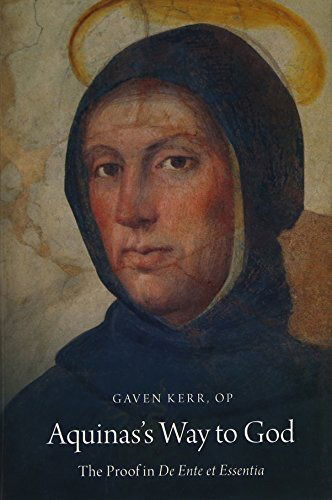
3:16: Aquinas is almost synonymous with the ontological argument attempting to prove the existence of God. You’ve looked at a neglected argument he makes in that of De Ente et Essentia Cap. IV. You say that if one accepts the methodological framework that Aquinas adopts then it’s a compelling argument. So what’s his argument and why is the distinction between essence and esse and a denial of an infinite regress of causes so important for looking at his metaphysics of creation?
GK: The first thing I would say here is that I don’t think Aquinas is synonymous with the ontological argument. In fact Aquinas explicitly reject that argument in qu. 2 of the Summa (or at least some version of it). Aquinas’s classical arguments such as the five ways proceed from motion, causality, necessity, participation in actuality, and finality.
I did indeed focus on the argument from the De Ente in my 2015 book. There are two reasons why I did this: (i) it is an argument that wears its metaphysics on its sleeve, and (ii) it seems to signify what I take to be theThomist way to God.
To begin with the first point then, prior to arguing for God’s existence Aquinas advances some technical argumentation for a distinction between essence and esse. There is some controversy over at what stage he actually does this, since there appear to be several arguments for real distinction prior to the proof of God. However, following John Wippel, I argue that once Aquinas has shown that at most there can be one being whose essence is identical to its esse, regardless of the actual existence of that being, anything that is such that it can be multiple is not that being, in which case its essence is not its esse. The proof of God, i.e. the proof that there is a being whose essence is its esseis then presented. Now, as the argument goes, it reasons from the caused character of esse in things in which essence and esseare distinct to some originating principle in which essence and esseare identical. This reasoning takes into consideration Aquinas’s views on per se causal series.
A per se causal series is one in which the causality of the series is not possessed essentially by the members of the series, e.g. motion in the hand-stick-stone. The hand-stick-stone do not move in virtue of what they are, but they are caused to do so. It is the mental agent who causes these to move, and he can do so precisely because being able to bring about motion is just something that a mental agent can do.
Contrast the per se series with the per accidens series in which the members do have the causality of the series essentially. So a father causes a son, who causes a son, who causes a son etc. The causality of this series is paternity, and each member can act as cause in virtue of what it is, it does not participate in the causality of the previous member of the series. Thus, Peter fathers James and James fathers John. But James doesn’t need Peter’s help in fathering John; Peter can be dead by the time James fathers John. But the case is different for the per seseries, since the hand-stick-stone participate in the causality of some primary cause (the mental agent) without which they would have no causality.
Esse is a causal property locatable in per secausal series since essence andesseare distinct in things. Given that esseis a causality locatable in some per seseries, if there were not some primary cause in which the members of that series were to participate for their esse, then those members would be lacking esse(just as the hand-stick-stone would be lacking motion without the mental agent). And if they lacked esse, they would not be. But such things do exist and do have esse, in which case there is some primary cause for their esse.
Returning to the hand-stick-stone example, the mental agent is primary cause in that series precisely because it can originate motion in the series in virtue of what it is, i.e. it has the causality of the series in virtue of what it is. Now, all essence/essecomposites participate in some primary cause for their esse. Given that such is a primary cause in a per se series in which esseis the causality, that primary cause must have the cause (esse) in virtue of what it is, in which case its essence is its esse; it is pure esse itself.
This is certainly not a straightforward argument, but it does lay out its metaphysics quite explicitly. Other arguments by Aquinas are certainly defensible (I think all of the five ways are), but their metaphysics is not as explicit, in which case the contemporary defender has to do a lot of unearthing of the metaphysics before even defending the argument. With the argument in the De Ente on the other hand, the metaphysics is there for all to see and so the contemporary defender just has to lay that out and show the plausibility of it. Hence my focus on the De Ente argument.
The second reason then is that I think the De Ente argument is the Thomist way to God. The reason why I think this is that it trades on an insight that is rather Platonic in nature and it is to the effect that things that are lacking in an important respect participate in that which is not so lacking. All of the five ways proceed in this way (or so I’m prepared to argue) and deploy this reasoning with regard to the particular dependencies that are evident to us, e.g. motion in terms of act and potency, causality etc. But the purest presentation of this move from participated to unparticipated being is in the De Ente.
Perhaps a third reason for why I looked at the De Ente is a more personal one and it is to the effect that I immediately felt at home with the reasoning in the De Ente; it struck a chord which strike drew me in and invited me to work on the argument in the way I did. And following on from that the understanding of Aquinas’s thought that I developed through working on the De Ente has remained with me ever since.
3:16: Why do you call Aquinas an existential metaphysician? It’s hard to see him as a Satre avant la lettre!
GK: I call Aquinas an existentialist because the fundamental metaphysical principle of his thinking is the act of existence. One cannot understand Thomistic metaphysics without understanding esse. His whole metaphysics seeks to unearth the actual existence of things and the principles thereof.
Now of course this is not the existentialism of Sartre whereby one exists in the world and is free or obliged to determine one’s being through a fundamental project. In that view existence is not explained but presupposed and in turn moulded. Thomas’s thought goes deeper than that and seeks to think through the very existence of things, and so he deserves to be called an existentialist philosopher in contrast to the existentialism of Sartre.
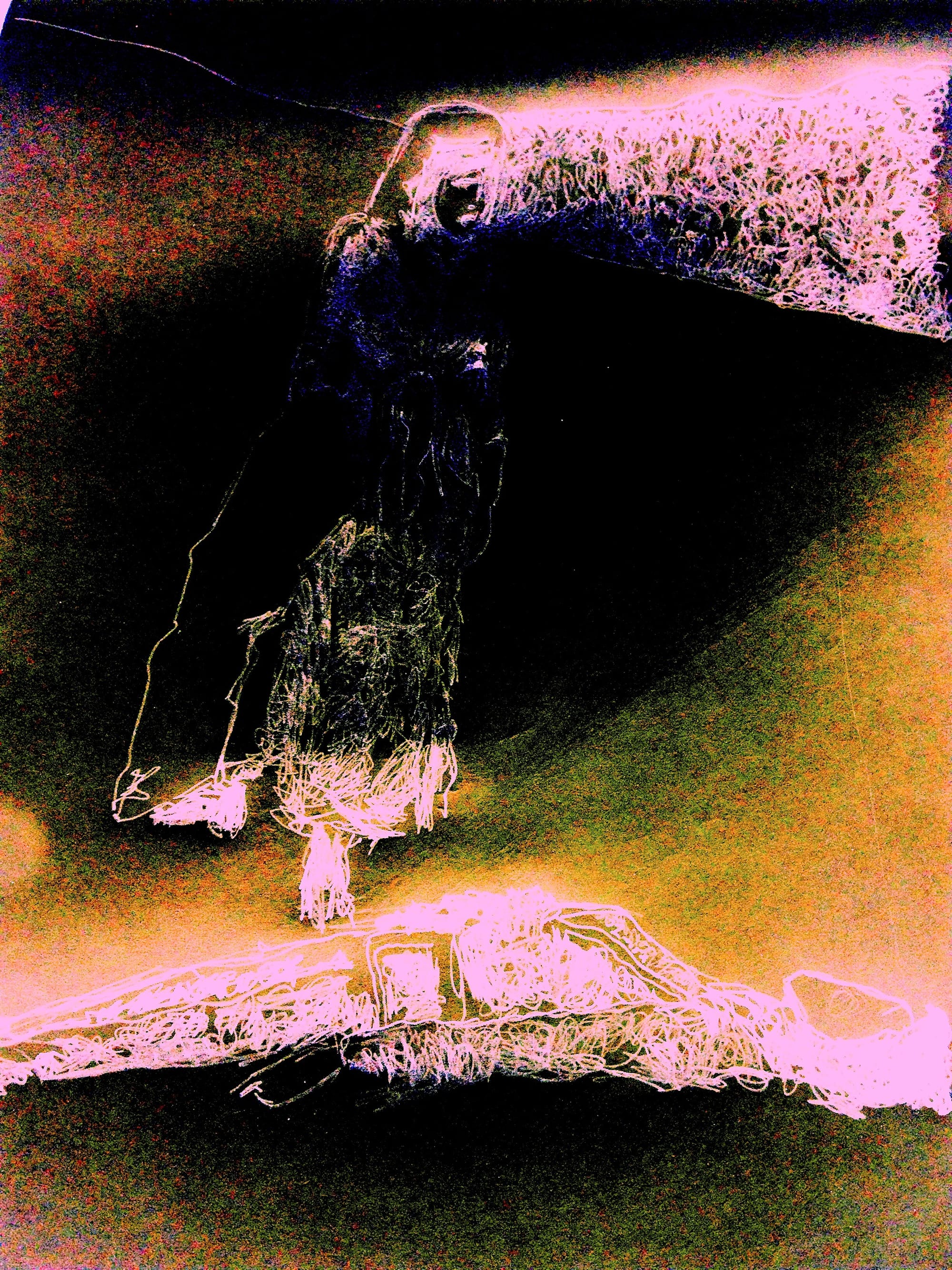
3:16: Can you sketch for us the salient considerations regarding the history of the philosophy of creation and the nature of the agent of creation?
GK: Thomas has two very famous passages wherein he does this: De Potentia Dei, qu. 3, art. 4 and Summa Theologiae, Ia, qu. 44, art. 2. Therein Thomas traces the trajectory of philosophical reflection on the nature of creation from the Presocratics onwards. As he goes through this history he considers the adequacy of each position against the backdrop of his metaphysics of esse. The extent to which a position approaches a consideration of essewill determine the extent to which that position reaches the truth about creation.
Creation is the origin of esse in things so that without that things would be nothing. In reading the history of philosophy Thomas argues that we have fine accounts of how things are this rather than that, or this kind of thing rather than that kind of thing; but it is only when we get to a consideration of essethat we can explain why there is something rather than nothing. Once we do that we are at an acceptable notion of creation and the agent of that will be the agent that can originate esse, which is of course He in which essence and esseare identical.
3:16: How do you account for the nature of creation and how we should understand the idea of being created ex nihilo?
GK: Creation is the origination of esse in things, more explicitly it is the production of the total substance in being. So let’s take a putative substance, e.g. a man. That man is composed of matter and form, but he does not exist unless he has esse. The creation of that man would be the production of that man in being so that he does have esse, and all of his substantial components, i.e. matter and form, are co-created with him.
Creation ex nihilo is twofold. On the side of the agent of creation, creation is ex nihilo insofar as God makes use of nothing in creating. He is pure esse, and so in originating esse He does so by means of His own resources, i.e. by His own esse. On the side of the creature, the creature does not naturally exist, i.e. it does not exist in virtue of what it is; it is naturally nothing. Yet the creature happens to have esse. Hence the creature is ex nihilo insofar as in being created it steps out from nothing and is an existing thing.
3:16: When talk is of a primary cause it sounds like we’re talking about the first in a linear causal chain, but this is a mistake in regards this Thomist metaphysical view isn’t it?
GK: If we go back to the per se causal series outlined in my answer earlier this becomes clearer. Consider once again the cause of the motion of the hand-stick-stone, it is the mental agent. The mental agent is such that it has the causality of the series in itself and originates that causality in the series. The example is a fairly innocuous one simply to show how the metaphysics of the series works. But what it shows is that to be a primary cause in the series is not to be first, but to be what has the causality essentially. This does not mean that the primary cause is caused in no respect; it only means that it is uncaused in respect of the series in question. It is only when we have some absolute causality property without which there would be nothing (such as esse) that the primary cause of that is uncaused in no respect, since there is nothing to which it is subject.
3:16: So what is actually originated by God’s act of creation?
GK: It is the existing substance. All of its metaphysical components are co-created in the thing, but it is the substance itself that is created. Given a created substance we can interrogate it for layers of metaphysical dependency. So we have the ultimate layer of dependency which is dependence on esse, but then we have the dependence of matter on form for formal structure and the dependence of accidents on the substance. But all of these are co-created with the thing itself.
3:16: How does the beginning of creation stand in relation to God?
GK: The beginning of creation simply signifies the time at which something came to be. Thomas was notorious for holding that there are not sufficient demonstrations of the beginning or the eternity of creation. Both are possible. We can easily see how a finite creation with a beginning is possible, but it is difficult to see how an eternal creation is possible, and so this is how I explain it to my students. Imagine that the sun and the moon were without beginning and so have existed eternally. The sun is the cause of the illumination of the moon such that remove the sun and the moon is no longer illuminated. Nevertheless, given the beginninglessness of the sun and moon, the illumination of the moon by the sun never began to be. Hence, we can have causality and causal dependence without a beginning. And this is Thomas’s point, even if creation did not have a beginning, creatures would still be dependent for their essesince in them essence and esseare distinct.
Now time is the measurement of the before and after in a process of change. If we have things that can change, we have time. If we have an infinite number of changeable things, then time is without beginning. If we have a finite number of changeable things, then time had a beginning. There is a beginning of creation then if there are a finite number of things subject to change. But Thomas argued that the arguments which seek to demonstration this are insufficient; rather we accept that there was a beginning to creation on the basis of what God has willed, and we only know what God has willed on the basis of revelation.
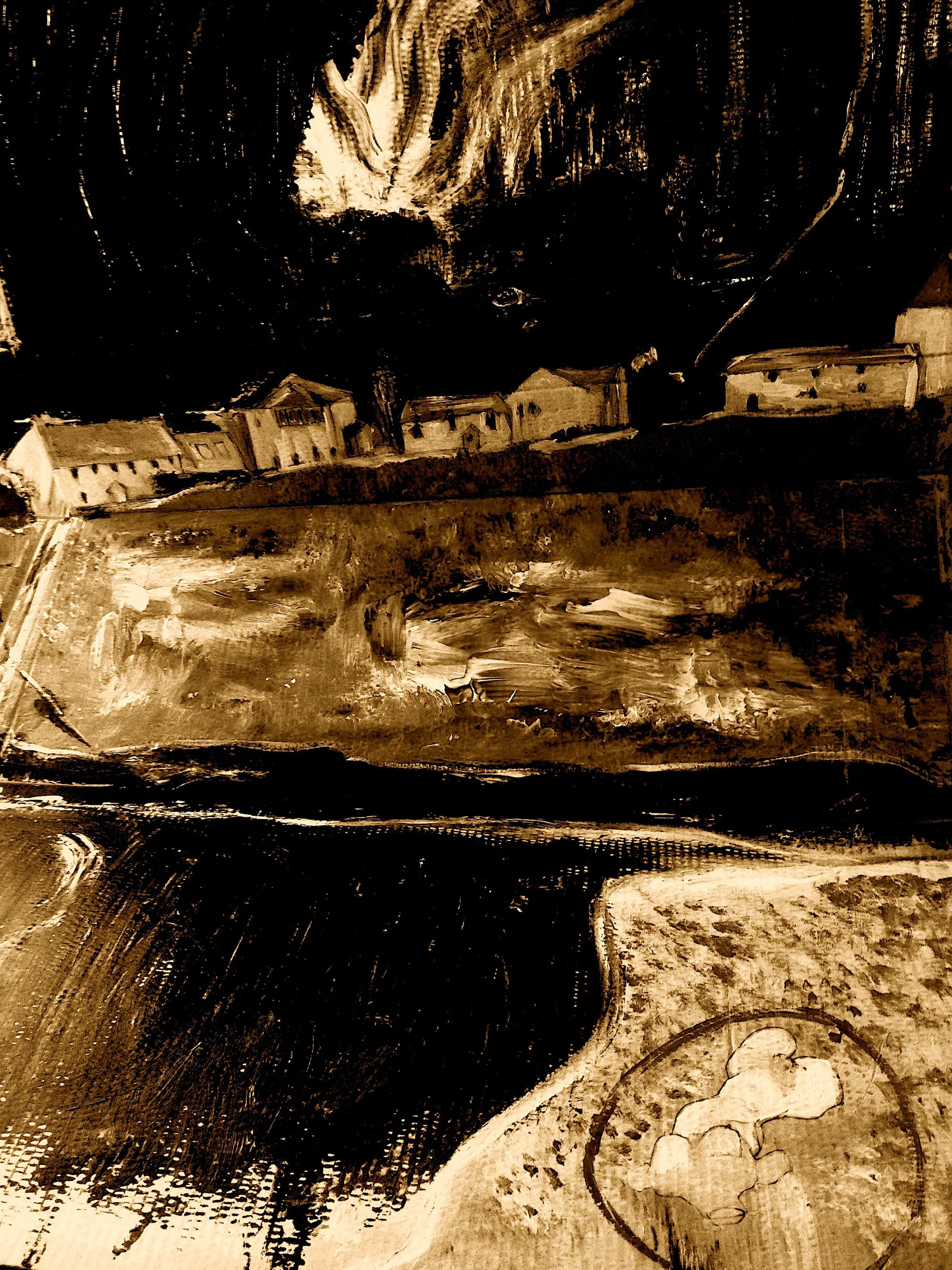
3:16: How does this metaphysics account for the development of created things over time?
GK: Created things would not be unless they had esse. Esse actualises the things that are so that there is nothing actual in the creature unless it participates in esse. So the substance can change in this way and that, but such changes occur within the context of the actual existence of the substance which the substance would not have unless for esse. Hence, things can grow, develop, change, evolve over time precisely because they have esse. If we return to the hand-stick-stone example we can appreciate this further.
The mental agent grants the causality of motion to the hand-stick-stone. The hand-stick-stone deploy that causality in their own specific way as hand-stick-stone, yet none of them originate that causality. Hence, whilst hand-stick-stone are real secondary causes of the series, they would have no causality were it not for their participate in the causality of the mental agent.
Similarly creatures participate in esse, ultimately God’s esse, yet the essecreatures have is individual to each creature and is a specified esse. Like the motion in the hand-stick-stone, the esseof creatures is deployed in each creature’s specific way, so creatures are genuine causes and enter into genuine causal relationships which form and transform them over time. However, creatures are not the originators of esse, they merely participate in it. Therefore, creatures can only enter into such casual relationships and transformations because they participate in God as primary cause of esse; were they not to do so they would not be and so could not have any causal relations.
3:16: How is God not just the originating primary cause but also the absolute final cause? How does Aquinas conceive humanity as returning to God?
GK: Just as creatures have a kind of causality which they do not have essentially (esse) and which points to an originating source of causality (God as primary cause), so too do they have another kind of causality which they do not possess essentially but which this time points to a primary final cause or end. This causality is final causality and it is such that everything has some determined activity as a feature of its action. If a creatures activity were not some determinate activity, then it would not be doing anything at all. The determination of a creatures activity is what it is doing in that activity; and what it is doing is the completion of some process. Now the completion of a process is the goal or end of that process, and as its completion signifies its good, i.e. it is what it is for. Given that all causal processes are like this, every causal process has some sort of finality to it; and since finality culminates in the completion and so the good of the process, all causal processes are ordained towards the good.
Now this ordination to the good is not a causality that creatures possess essentially since it functions like a magnetic attraction – creatures are seeking the completion of their causal processes, they do not have such completion. Accordingly, the causality of the good is locatable in some per se series. But as we have seen, the members of the per se series would be lacking in their causality unless there were some primary cause of that causality which possesses the causality essentially. Now, we are consider a per se series in which goodness is the causality, in which case unless there is some primary final cause which is goodness itself (the good) that all desire, the members of that per se series would not have the causality in question. Hence there is a primary or ultimate final cause which is the good itself.
Now, goodness is convertible with esse; this is because there is no completion of final actuality of a thing without the esseof a thing. All completion of a causal process is a completion that occurs because of esse. But the completion of a causal process is the good of that process. Hence there is convertibility of the good withesse. Esse is not just the act of all acts, but the perfection of all perfections. As pure esseitself God is the originating source of esse for all things, but as esseitself God is the good itself to which all things are drawn as the ultimate final cause. The completion of all things then will be in God, since as pure esseall things are brought to complete actuality in God.
Now humans are interesting since a feature of their being is intellect and will. Humans are capable of understanding the truth and willing the good. Their full actuality cannot come then unless they come into communion with God Whose essegrounds the truth of all things and Whose goodness all desire. The destiny of the human is to enter into communion with God, otherwise the human being remains incomplete.
Now this does not entail that the human being does enter into communion with God, only that unless the human does the human will remain unfulfilled. If one has certain theological commitments by which humans can enter into communion with God, then so much the better. But the philosophy I have been articulating does not necessitate such commitments. Nevertheless those theological commitments would sit nicely with the philosophy as thus articulated.
3:16: Big Bangs and Darwin are sciences way of looking at origins and developments in nature. How does a Thomist metaphysics interface with our best science? I guess I’m wondering whether a Thomist metaphysics can be reconciled with a metaphysics suggested by physics?
GK: All of natural science presupposes the existence of things and given the appropriate formal object takes things from there. So regardless of what the formal object is, the study in that science will presuppose the existence of that formal object. No science demonstrates the existence of its formal object; it presupposes it and moves on. Hence, all natural science presupposes esse, but says nothing about esse. Metaphysics on the other hand considers being as being, and part of that consideration is a consideration of esse. Now we have seen that esse is a key consideration in the demonstration of God. But since natural science is not dealing with esse, it is not concerned with the kind of demonstration of God based on esse.
Not only that, insofar as natural science does not consider esse, it is not considering origins as such, or at least not the origin of esse; since the contrast with esse is nothing, whereas natural science presupposes esse and gets on with things.
Accordingly, the Thomist metaphysics, whilst it takes cognisance of what goes on in natural science, is engaged in a different kind of endeavour from the natural scientist. And since the formal objects are distinct, there is no competition in their explanations of things, since they are not endeavouring to explain the same things.
3:16: And for the readers here at 3:16, are there five books you can recommend that will take us further into your philosophical world?
GK: I always think that those classic philosophical texts when you can appreciate the excitement and wonder of philosophy are best to recommend. So in this regard I recommend:
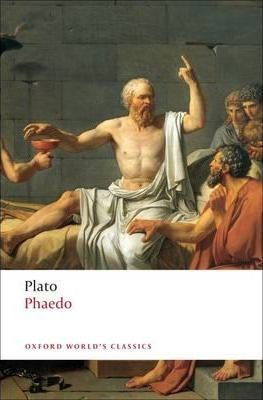
Plato, Phaedo [or really any of the classic dialogues, they are all exciting].
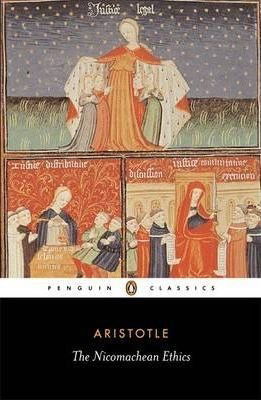
Aristotle, Nicomachean Ethics.
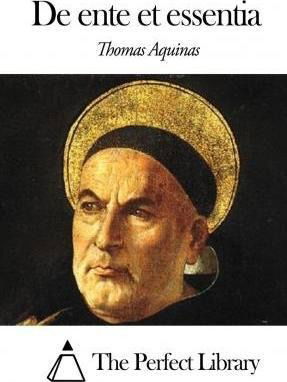
Aquinas, De Ente et Essentia.
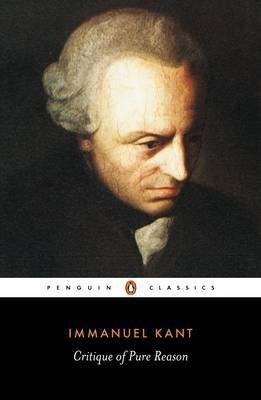
Kant, Critique of Pure Reason [if one can’t get excited about Kant, the substitute with the classic works by Descartes, Locke, Hume].
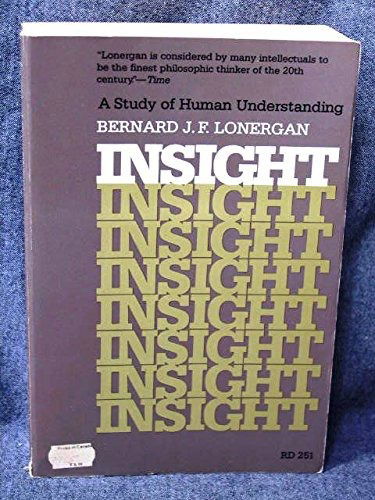
Lonergan, Insight – A Study of Human Understanding.
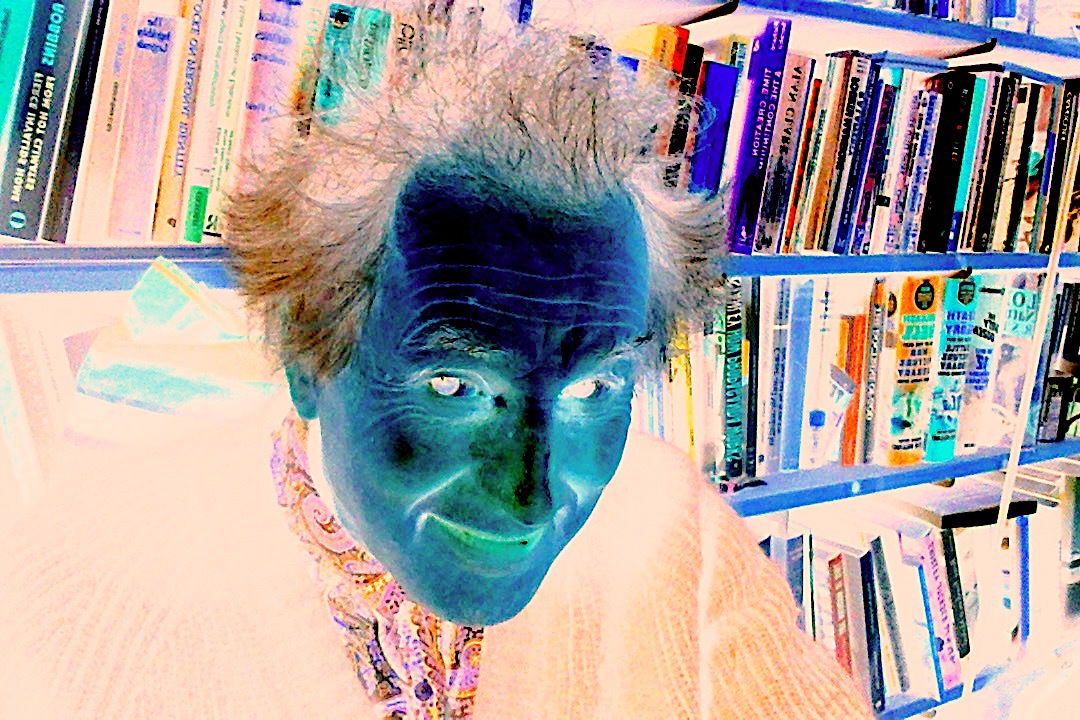
ABOUT THE INTERVIEWER
Richard Marshall is biding his time.
Buy his second book here or his first book here to keep him biding!
End Times Series: the index of interviewees
End Time series: the themes